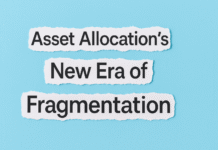Adults with learning disabilities are being left behind by mainstream banking services, according to a new report from Project Nemo. Despite ongoing efforts to promote financial inclusion, 61% of adults with learning disabilities say banks are not doing enough to meet their needs.
This revealing insight comes from the newly launched report, Safe Spending for Adults with a Learning Disability: A Call to Action for Financial Services, supported by Nationwide Building Society. The report, the most comprehensive of its kind, highlights the real-life challenges that people with learning disabilities face when managing money, especially in an increasingly digital economy.
Financial Independence Out of Reach for Many
One of the most concerning findings is that 32% of adults with a learning disability do not have a bank account in their own name. This is primarily due to the complex processes involved in opening and managing accounts. Despite the push toward digital banking, this vulnerable community is struggling to access basic financial services tailored to their needs.
Kris Foster, co-founder of Project Nemo and someone with a learning disability, shared, “Too often, people speak for us or about us—but rarely do they listen. This report centres our voices. Now it’s time for banks to act and make financial independence a reality for everyone.”
The Digital Shift Isn’t Inclusive
As the UK rapidly shifts from cash to digital transactions—with only 12% of payments made in cash in 2023 compared to 60% in 2008—the transition poses a significant hurdle for the learning disability community. Digital tools often lack accessibility, making it harder for many to manage their finances independently and safely.
A staggering 87% of adults with a learning disability and their supporters rely on informal and often insecure workarounds. These include sharing PINs or impersonating the account holder on customer support calls—practices that introduce serious risks and fall outside legal frameworks like Lasting Power of Attorney.
Despite the existence of fintech solutions, awareness remains low, leaving people vulnerable and unsupported in day-to-day transactions.
Over-Reliance on Informal Support
Because many banks have not adapted to be more accessible, families and caregivers are stepping in to fill the gaps. However, this informal support often bypasses proper legal channels, which can expose both the account holder and their supporter to risk.
Many technological “advancements,” such as self-service checkouts, online shopping, and reduced physical bank branches, have unintentionally made things worse. People with learning disabilities frequently benefit from human interaction and clear, guided communication—elements that are vanishing in the digital age.
What Needs to Change?
Project Nemo’s report doesn’t just highlight the problem—it offers clear solutions. Based on extensive research with individuals with learning disabilities and their supporters, the report outlines several features and services that banks can implement to enhance financial accessibility:
- Simple, clear language: Financial tools and communication should use plain English and visual aids where possible.
- Customisable options: Services should be adaptable to individual needs to ensure a better user experience and comfort.
- Spending oversight tools: Features allowing supporters to monitor spending and flag risky activity can empower users while ensuring safety.
- Specialised customer support: Trained staff and accessible service channels can significantly boost user confidence.
- Innovative tools: Suggestions include ‘Calm Mode’ for reducing sensory overwhelm, wearable payment options, and savings pots for goal-based saving.
Joanne Dewar, co-founder and project lead at Project Nemo, emphasized, “This report shows how modern payment trends, which many consider convenient, are in fact creating new barriers for people with learning disabilities. These findings should prompt banks to revisit and redesign their services with inclusivity at the core.”
Driving Systemic Change
Project Nemo has teamed up with Kathryn Townsend—Government Disability and Access Ambassador for banking—and Nationwide’s Head of Customer Vulnerability and Accessibility to launch four targeted workstreams focused on improving financial inclusion.
The Research & Insights workstream is the first to launch and was delivered with support from partners including Mencap and Dosh. Uniquely, this group includes financial services professionals who are also parents of young adults with learning disabilities, offering deep personal insight into the systemic gaps.
As the UK continues shaping its National Payments Vision and Financial Inclusion Strategy, this report serves as a timely reminder: real progress means designing financial systems that serve everyone, including the 1.5 million people in the UK living with a learning disability.
Conclusion
Project Nemo’s findings call for urgent action. Financial institutions must rethink how they serve adults with learning disabilities, embracing inclusive design and customer-centric services. It’s time for banks to remove outdated barriers and lead the way in creating truly accessible financial solutions for everyone.











